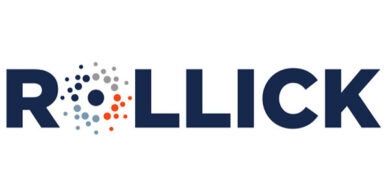Anonymous Distributor
One thing that many businesses fail to realize: Price has very little to do with cost. Your customers will buy something if they feel it provides sufficient value for the price. If they do not feel it provides sufficient value, they will not. Period. How much it cost you to produce whatever it is you sell is not the customer’s problem; your customers do not owe you a profit, or even a “fair price.” Your job, as a business owner, is to figure out how much your customers think your product or service is worth, and charge that amount. No more, no less. (Easier said than done, I know.)
Salespeople mean well, but their job is to sell more product. It is the boss’s job to make sure the company makes money.
Price can be a very effective way to control volume. How are some lawyers and house painters able to charge double what other people charge? They have more customers than they can personally handle, so it is profitable for them to charge more and lose some business — rather than lose business by being overwhelmed.
Pricing is as important as any business decision, but frequently it is treated as if it were no decision at all.
Business owners just keep doing whatever they have always done, for better or worse. They do this because they fear they will — as they’ve been told a thousand times — price themselves out of the market.
No one ever warns them not to underprice themselves out of business. But I think that happens far more often.
******************************************************************************************
Who makes the best negotiators? Herb Cohen, in his book You Can Negotiate Anything, defined the best negotiators as those people who get what they want. And he suggests that the people who seem to get what they want the most are…children. He goes on to say, “Children are little people in a big person’s world. They are people without formal authority or power, yet they seem to get what they want.”
Cohen suggests several reasons why little people do so well. “Number one, they aim high,” he says. “They understand that if you expect more, you get more.
“Second, they recognize that ‘no’ is an opening bargaining position… ‘No’ is not final. It means that at this particular moment in time, the other side looks at this negatively, which is a common reaction when someone hears an idea for the first time.
“Three, they get in the habit of forming coalitions. Who do kids form coalitions with? Their grandparents. Appealing to their grandparents is easy, because they have a common enemy, the parents.”
Cohen also says, “Kids are good negotiators because they are naïve. They say things like ‘I don’t know. I don’t understand. Help me.’ And that works.”
“Last of all,” Cohen says, “kids tend to be tenacious and persistent. They wear you down. So be persistent, repeat your point over and over again. Wear the other side down.”
Cohen suggests, “If you do some of these things, you become much more effective, you become a much better negotiator, and you make things happen.”
So maybe we should all give it a try. But don’t try it out on your wife. Those negotiations are the only ones you’re generally better off losing.
******************************************************************************************
Twitter was valued at $7 billion in early July 2011 for an upcoming IPO. By my calculations, that is $1 for every hour of time it has wasted.
******************************************************************************************
Dan Reynolds is a cartoonist “extraordinaire” whose work you’ve probably seen more often than you realize in popular magazines and on the Internet. One cartoon you might remember because of your relationship to the OPE industry features a cow driving a riding mower and cutting grass, with the discharge chute curved up high so that the grass shoots directly into the cow’s mouth! It’s a classic!
I’ve been following Reynolds’ work for many years. He recently released a gem. A fly is walking a tight rope, and his safety net below is a spider’s web. Talk about pressure! It’s a “laugh outloud” cartoon and reprints of this cartoon and others are also available at www.reynoldsunwrapped.com/index.htm. No, I don’t receive a commission. I’m just sharing information about one of the world’s best cartoonists and coincidentally an all-around great guy too.
******************************************************************************************
One of our industry’s outstanding personalities is Stan Crader, the owner of Crader Distributing, a long-time Stihl distributor and member of the Outdoor Power Equipment and Engine Service Association (OPEESA). Crader is also an outstanding author and has published two books, The Bridge and Paperboy, in 2007 and 2010, respectively. Both books are available on Amazon.com, both are great reads, and right now is the perfect time to buy copies of each, as Crader and his wife Debbie recently announced they are donating all of their royalties from book sales in 2011 to the tornado recovery efforts in Joplin, Mo. You’ll feel good about helping with tornado relief efforts, and you’ll have a couple of good books to read on vacation this summer. You can’t beat that.
******************************************************************************************
Contact the Anonymous Distributor at anonymous.distributor@gmail.com or read his blog at www.anonymousdistributor.blogspot.com.


